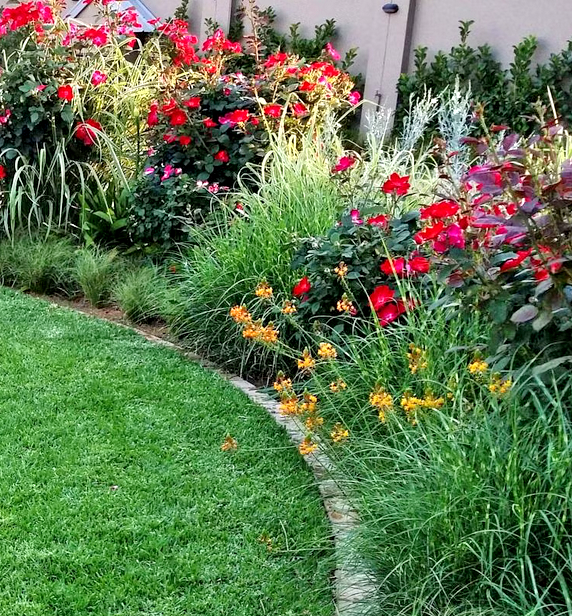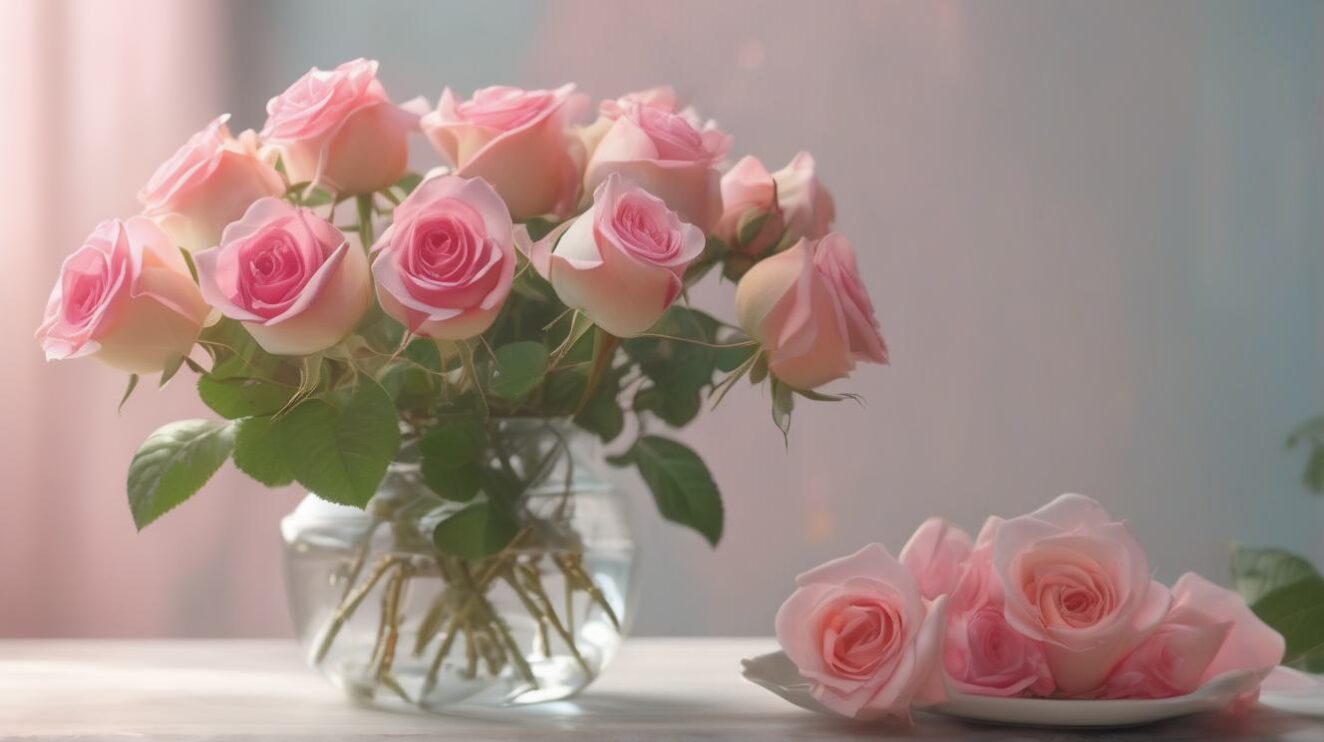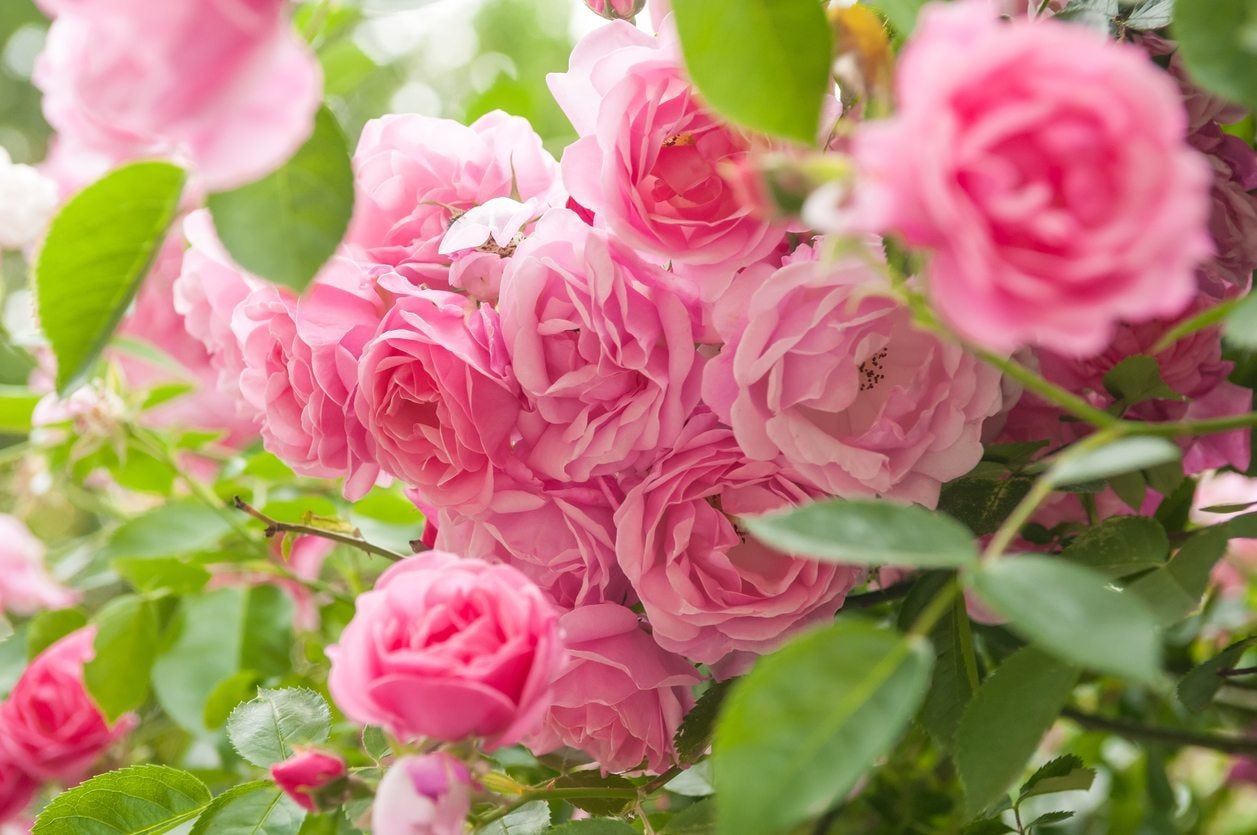
When it comes to designing a beautiful garden, roses are often a popular choice. Their vibrant colors and fragrant blooms can add a touch of elegance to any outdoor space. However, roses can also benefit from the presence of companion plants. Companion planting is the practice of growing certain plants together to enhance their growth and deter pests. In this article, we will explore 20 top companion plants for roses and also discuss what plants to avoid.

Benefits of Companion Plants for Roses
Companion plants can provide several benefits to roses. They can attract beneficial insects, such as ladybugs and lacewings, which help control pests like aphids. Some companion plants also have strong scents that can mask the fragrance of roses, making them less attractive to pests. Additionally, certain plants can improve soil quality by fixing nitrogen or providing shade, which can benefit the overall health of roses.
Top Companion Plants for Roses
1. Lavender: Lavender’s strong scent can repel pests and its vibrant purple flowers create a beautiful contrast with roses.
2. Marigolds: These colorful flowers attract beneficial insects and also repel nematodes, which can be harmful to roses.
3. Geraniums: Geraniums not only add a pop of color to the garden, but they also repel pests like aphids and Japanese beetles.
4. Salvia: Salvia’s tall spikes of flowers attract pollinators and its strong scent can deter pests.
5. Catmint: Catmint’s delicate blue flowers attract bees and butterflies, which are important pollinators for roses.
6. Alliums: These ornamental onions have a strong scent that can repel aphids and other pests.
7. Dianthus: Dianthus’ low-growing habit makes it a great ground cover around roses, and its bright flowers attract beneficial insects.
8. Yarrow: Yarrow’s feathery foliage and colorful flowers attract predatory insects that feed on pests.
9. Nasturtiums: Nasturtiums not only add a splash of color to the garden, but their leaves can also attract aphids away from roses.
10. Chives: Chives’ purple flowers attract bees and its strong scent can deter pests.
11. Thyme: Thyme’s low-growing habit makes it a great ground cover, and its strong scent can deter pests.
12. Oregano: Oregano’s aromatic leaves can repel pests and its flowers attract bees.
13. Marjoram: Marjoram’s delicate flowers attract pollinators and its strong scent can deter pests.
14. Foxgloves: These tall, showy flowers attract bees and their presence can help shade the soil around roses.
15. Cosmos: Cosmos’ colorful flowers attract bees and butterflies, which are important pollinators for roses.
16. Sweet Alyssum: This low-growing ground cover attracts beneficial insects and its delicate flowers add a touch of charm to the garden.
17. Zinnias: Zinnias’ bright flowers attract butterflies and their tall stems can provide some shade to roses.
18. Larkspur: Larkspur’s tall spikes of flowers attract bees and their presence can help shade the soil around roses.
19. Sunflowers: Sunflowers’ vibrant blooms attract bees and their tall stems can provide some shade to roses.
20. Hyssop: Hyssop’s aromatic leaves and flowers attract beneficial insects and its strong scent can deter pests.
Plants to Avoid
While companion plants can greatly benefit roses, there are also some plants that should be avoided. These plants can compete with roses for nutrients and resources, or they may attract pests that can damage roses. Some plants to avoid planting near roses include:
– Mint: Mint is a vigorous grower that can quickly take over the garden and compete with roses for resources.
– Black walnut trees: The roots of black walnut trees release a chemical called juglone, which can be toxic to roses and many other plants.
– Ivy: Ivy can smother and shade out roses, inhibiting their growth and flowering.
– Dill: Dill can attract aphids, which can be harmful to roses.
– Fennel: Fennel can attract pests like aphids and spider mites, which can damage roses.
Companion planting can be a great way to enhance the growth and health of roses in your garden. By choosing the right companion plants, you can attract beneficial insects, deter pests, and improve soil quality. Just remember to avoid planting certain plants that can compete with or attract pests to your roses. With the right combination of companion plants, your roses will thrive and create a stunning display in your garden.
